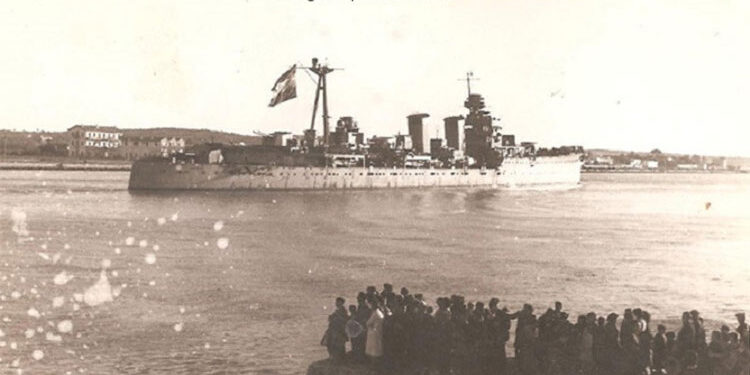In the framework of the Country Focus: Tunisia and the exhibition Exodus and the wind: Spanish exile in the Maghreb (1939-1962), Casa Árabe presents tomorrow Tuesday at 7 pm a session dedicated to the Spanish republican exile in Tunisia. Free entry until the capacity of the room is complete. Event developed in Spanish.
Towards the end of the Civil War, 4,093 Spaniards sailed to North Africa and landed in the Tunisian port of Bizerte. What happened to you in that country? This appointment, where a short documentary on the subject will be shown, will discuss it.
The republican exile in Tunisia is the story of the refuge of the sailors of the Republic’s fleet who, before the end of the war, decide to sail for North Africa with Admiral Buiza at the head until they land in the Tunisian port of Bizerte. There were a total of 4,093, including 122 civilians, 21 women and 4 children. Interned the men at first in the camp of Meheri-Zebbeus, near Meknassy, in the interior of Tunisia, half decided to be repatriated to Spain, where they ran an uncertain fate.
But the history of the remaining 1,700 was long, very long, going through the Second World War, which had in Tunisia one of its most dramatic scenarios, and extending with different luck for those who lived it, until well after the country’s independence.
Some were fortunate enough to have a unique experience in the agricultural colony of Chambi-Kasserine; others, judged “undesirable” by their political and human nonconformity, ended up in labour camps and internment first in Tunisia and then in Algeria; and the bulk, about 900, some of whom had regrouped their families, remained integrated into civilian life in a country struggling for independence. Under the protectorate of France, first, and after independence, those 900 Spaniards continued to miss a return to their country that only much later could become a reality for some.
Some figures will be remembered for their uniqueness, such as David Gasca or Angel Brihuega, who acted as a kind of “consulate” to the 900 refugees, recognized by French and Tunisians, and others like Elodia Zaragoza Jover, They were fully integrated into Tunisian life without forgetting their Spanish and republican roots. Although there were also those for whom “die in exile (was) die in oblivion”, title of the short by journalist Javier Martín, It will be projected alongside the interventions of the Tunisian historian and Hispanic scholar Bechir Yazidi and the professor at the Autonomous University of Madrid Bernabé López García. The event will be broadcast live on our YouTube channel.







